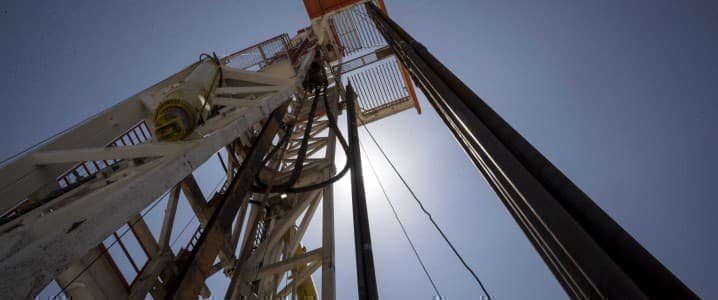Crude oil prices strengthened further this week after OPEC+ signaled its growing optimism about the balance between demand and supply, and confirmed that it planned to continue increasing production.
Bloomberg quoted Saudi Energy Minister Abdulaziz bin Salman as saying that crude oil demand “has shown clear signs of improvement” and Russia’s Alexander Novak as noting a “gradual economic recovery.”
The improvement in demand is what is keeping prices higher despite expectations of much more crude oil coming from Iran in the next month after U.S. sanctions are lifted, which appears to be what the majority of observers expect.
“There’s some confidence right now improving demand should be able to absorb what could be an additional 2 million barrels a day from Iran, if it materializes,” Howie Lee, an economist at Oversea-Chinese Banking Corp, told Bloomberg. “Demand from the U.S. has been driving the global consumption recovery.”
The Financial Times reported that the strong oil price rise in recent weeks has added to investor concern about rising inflation that could hamper economic recovery but then quoted Saudi Arabia’s bin Salman as dismissing inflation as cause for concern.
“I’m not the right economist to talk to [about inflation], talk to Goldman Sachs . . . and hopefully they’ll tell you it’s a minuscule impact,” the official told media after the OPEC+ meeting as quoted by the FT.
Rising prices could become a problem for demand, however. According to the FT report, analysts from within OPEC expect global oil inventories to decline fast, possibly prompting the cartel to boost production faster than originally planned.
“The market is now facing the exact opposite dilemma of April 2020. Instead of a spiralling downwards demand shock . . . producers now have just as delicate a task to bring back enough supply to match the swiftly rising oil demand,” Rystad Energy analyst Louise Dickson told the FT.
By Irina Slav for Oilprice.com
More Top Reads From Oilprice.com:
- Oil Rises After ‘Cataclysmic’ Boardroom Showdown
- Moody’s: Credit Risk Is Growing For Big Oil
- Oil Prices Hit 2-Year High



















The Financial Times’ reported concern about rising inflation that could hamper recovery and the impact of Iran’s return to the global oil market could be dismissed as blatant ploys to depress oil prices.
A lifting of US sanctions on Iran may not see the light of day even by 2023 or ever. The reason is that the positions of the United States and Iran are irreconcilable.
If in the very unthinkable possibility the sanctions were lifted, Iran could only bring 650,000 additional barrels a day (b/d) to the market. The reason is that Iran has been managing with help from China to export 1.5 million barrels a day (mbd) or 71% of its pre-sanction exports of 2.125 mbd. The 650,000 additional barrels a day are the difference between Iran’s exports pre-sanctions and those under the sanctions. A global economy projected by the IMF to grow at 6.3% this year could easily absorb this volume.
Moreover, the claims that Iran can in time raise its production to 5.5-6.5 mbd are no more than pipe dreams mischievously intended to depress surging oil prices.
The highest production Iran could achieve if and when the sanctions are lifted is 3.75-3.80 mbd. Iran is yet to manage to produce the production quota of 4.0 mbd allocated to it by OPEC.
Brent crude oil price is headed towards $70-$80 a barrel in the third quarter of this year if not earlier and is projected to average $67-$68 for the year with global oil demand returning to pre-pandemic level of 101.0 mbd by the middle of this year.
Dr Mamdouh G Salameh
International Oil Economist
Visiting Professor of Energy Economics at ESCP Europe Business School, London